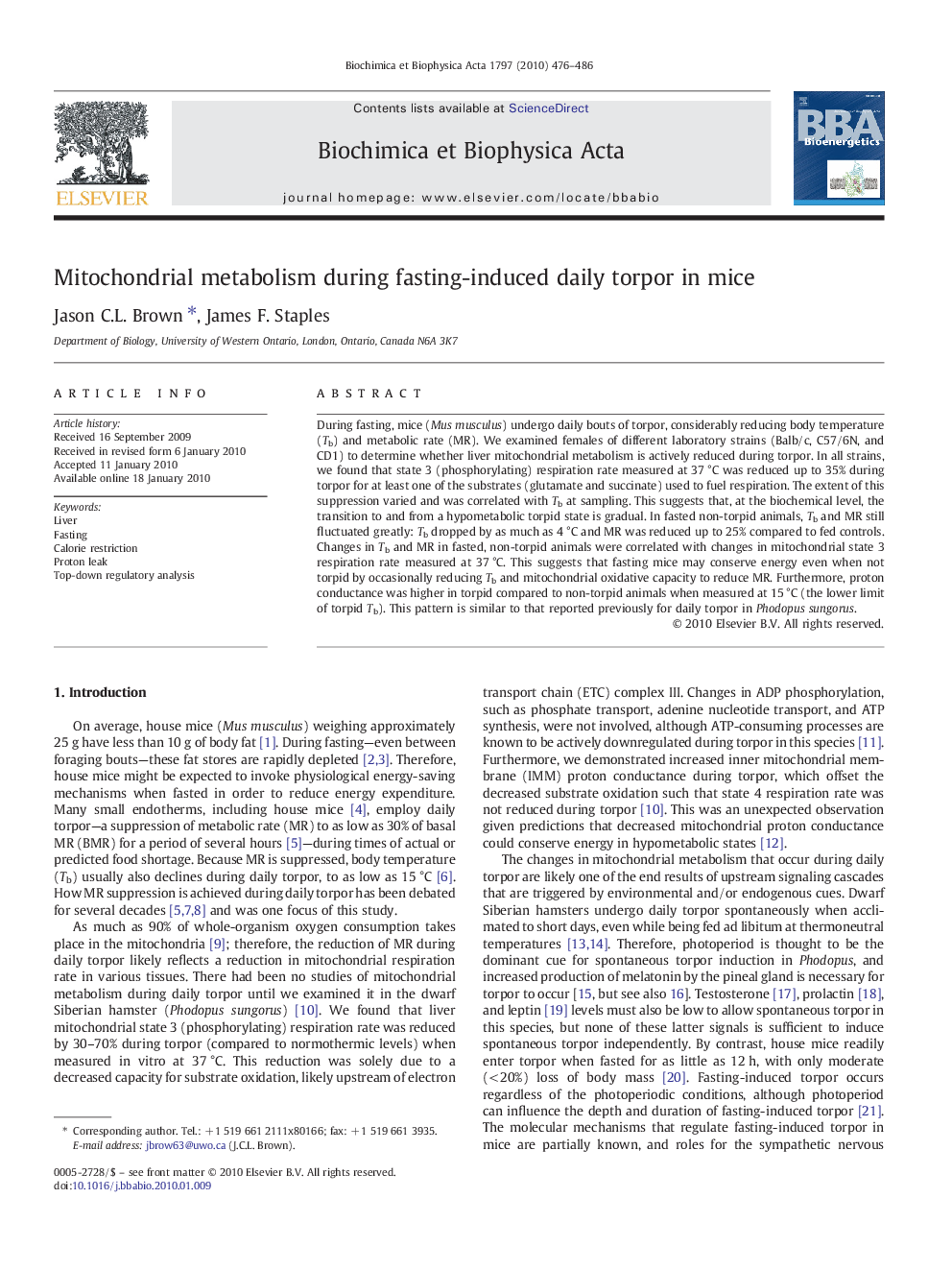| Article ID | Journal | Published Year | Pages | File Type |
|---|---|---|---|---|
| 1942884 | Biochimica et Biophysica Acta (BBA) - Bioenergetics | 2010 | 11 Pages |
During fasting, mice (Mus musculus) undergo daily bouts of torpor, considerably reducing body temperature (Tb) and metabolic rate (MR). We examined females of different laboratory strains (Balb/c, C57/6N, and CD1) to determine whether liver mitochondrial metabolism is actively reduced during torpor. In all strains, we found that state 3 (phosphorylating) respiration rate measured at 37 °C was reduced up to 35% during torpor for at least one of the substrates (glutamate and succinate) used to fuel respiration. The extent of this suppression varied and was correlated with Tb at sampling. This suggests that, at the biochemical level, the transition to and from a hypometabolic torpid state is gradual. In fasted non-torpid animals, Tb and MR still fluctuated greatly: Tb dropped by as much as 4 °C and MR was reduced up to 25% compared to fed controls. Changes in Tb and MR in fasted, non-torpid animals were correlated with changes in mitochondrial state 3 respiration rate measured at 37 °C. This suggests that fasting mice may conserve energy even when not torpid by occasionally reducing Tb and mitochondrial oxidative capacity to reduce MR. Furthermore, proton conductance was higher in torpid compared to non-torpid animals when measured at 15 °C (the lower limit of torpid Tb). This pattern is similar to that reported previously for daily torpor in Phodopus sungorus.
